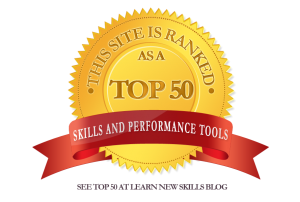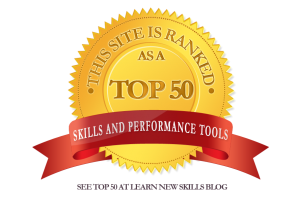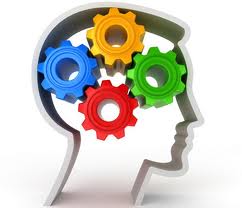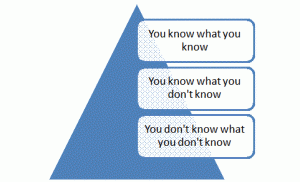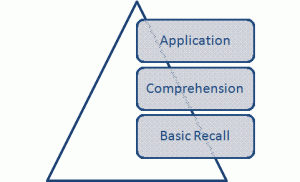Release-Top 50 Best Free Websites 2011: Skills And Performance Tools
For Immediate Release: Learn New Skills Blog announces they will publish their annual Top 50 Best Free Websites. Their top 50 free websites for 2011 are for Skills And Performance Tools. On or before Thanksgiving.
Top 50 Best Free Websites 2011: Skills And Performance Tools: Summary
These free resources are for Managers and Entrepreneurs that want to grow personally and professionally, as well as for Entrepreneur’s who want to take their business to the next level, by learning Internet skills and tools for online marketing. Learn New Skills Development Strategies, as well as High Performance Tools To Improve Online Marketing Free.
It’s that time of year again for two traditions:
- It’s time for Thanksgiving, and that
means it’s a time to be grateful and to share - It’s coming to the end of the 2011 and
time again for our traditional top 50 free websites expose’.
Here is the theme the top 50 best free websites 2011:- No Money? No Problem!!!
The Award Badge for the best of the best.
This top 50 FREE list are all FREE websites that you can use for skill development strategies: learn new Internet skills and internet performance tools for online marketing. Recapture the web’s brain-expanding potential with our top 50 free resources for educating yourself online and using online performance enhancing tools.
This list was compiled not only for employees and managers looking to enhance their personal and professional skills, but also for entrepreneurs looking to start a usinesses, or small businesses looking to grow to the next level.
All of these websites for learning new skills and using high level performance online tools are FREE. All in all. there are 50 free resources online, covering 5 categories, with one #1 winner in each category.
Here are the 5 categories we chose, a total of 10 in each category, for our top 50 free best websites 2011:
- Education- there is no better place to develop skills than on the web. From leadership skills to any subject you want to learn about and master is right here in these top 50 free education sites. Top online universities, top online training programs, and websites that teach you new skills in a wide variety of subjects and disciplines.
- Entrepreneurs- grow and manage your business or launch on new business using the free websites.
- Internet Marketing- High level Internet skills and high performance Internet tools all free.
- Social Media- connect and make new friends or find new customers. Great for taking your business to the next level
- Publicity/Media Online- no better way to launch products and services and promote your business than through free advertising and free publicity.
These websites have effective tools that will be especially helpful for online marketers.
They will also help managers and entrepreneurs become a top performers.
Top 50 Best Free Websites And Free Resources Online 2011:Skills And Tools
The web is a powerful resource that can easily help you learn new skills and find useful tools for improving your online marketing performance. You just have to know where to look. Sure, you can use the main search engines like Google, Yahoo, or Bing to search for sites, but we wanted to save you a lot of time and frustration, and best of all: they are all in one place and the top 50 free websites 2011 are all trusted authorities in
their category and ranked with the best of the best at the number 1 spot.
Whether you are an individual or employee looking to grow, or a business owner marketing online or offline and wanting to grow to the next level, the Internet is a major influencing key and learning tool for you.
Learn what all smart online marketing companies already know: if you are a wannabe entrepreneur, or small business offline, statistics show that over 65% of all consumers check the internet first for local companies before actually buying their products and
services. If you haven’t already done so, it’s time to embrace the future by marketing your small business online.
We will publish the top 50 list by Friday November 18th.
You can reserve your copy now by filling in the form on the right of the blog. We will email you a hard copy you can keep and place right on your desktop and use every day to improve your performance.
Top ten reasons to utilize the top 50 best free websites 2011: Skills And Performance Tools:
- top 50 best free websites 2011: Skills And Performance Tools: all sites are trusted
- top 50 best free websites 2011: Skills And Performance Tools: all sites are authorities
- top 50 best free websites 2011: Skills: Skills And performance Tools: all sites are free
- top 50 best free websites 2011: Skills: Skills And Performance Tools: you can learn new skills
- top 50 best free websites 2011: Skills: Skills And Performance Tools: using them will
give you the skills and tools all top performing Internet marketers use
everyday - top 50 best free websites 2011:: Skills And Performance Tools: dedicated all sites are
dedicated to contents in their category and they and not just directories - top 50 best free websites 2011: Skills And Performance Tools: saves you time and
frustration top 50 free websites 2011: Skills And Performance Tools: helps you grow personally - top 50 free best websites 2011: Skills And Performance Tools: helps you grow
professionally - top 50 best free websites 2011: Skills And Performance Tools: helps you grow your business to next level
Stay tuned, the top 50 best free websites online for 2011 are coming soon, and you won’t want to miss them…they are that good!!!

